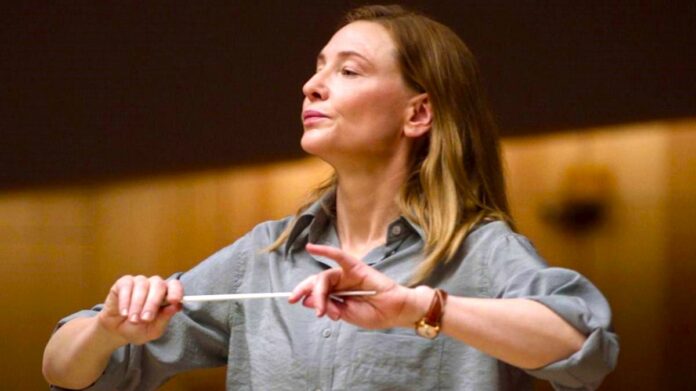Todd Field’s character-driven drama is yet another exploration of the self-indulgent artist archetype, which is not rare in modern cinema. But the sheer vehemence of his execution of the gripping tale of an infamous musician, Lydia Tár, makes it difficult to describe the feelings that the film is capable of evoking in a viewer. It is overwhelming to think of the various facets of existence that Field alights on in the most subtle ways. Adding to it, Cate Blanchett’s fierce performance manages to provide glimpses of the deepest ravines of the human psyche.
My attempt to write about a film that gives rise to not-so-easily recognizable emotions necessitates that I relive my experience of viewing as if trying to untangle a knot. Lydia Tár somehow reminds me of Charlotte Andergast (played by Ingrid Bergman) from Ingmar Bergman’s classic, “Autumn Sonata.” As one cannot describe a piece of music without divulging all the associations that the mind brings in, this thread seems important in understanding my relationship with the film.
In Autumn Sonata, Bergman chooses to unravel the mind of the musician through a confrontation with her daughter – a confrontation which is the consequence of years of strenuous relationship between them. Even though “Tar” focuses more on the artist’s intimate experiences, without ever putting them in words, the rifts in Lydia’s personal relations are quite prominent. She seems to be largely indifferent to the people she works with. She keeps her partner Sharon at bay from many of her affairs and appears to be maintaining a façade with her. Many of her whimsical decisions further strain and test their relationship. Though she strives to love her child, she is mostly absent and guided by only the idea of parental love.
In the opening sequence of the film, where Lydia is being interviewed, she propounds her perspective on the art of conducting an orchestra. As she speaks, it feels like she is probing into the very spirit of music and looks upon her role as not only a keeper of time but also a creator of time. Her polished, poised demeanor exudes power and authority. Her prowess further makes it easier for her to take the reins. It appears as if this sense of control that Lydia finds in her art is what sustains her. And this need for dominance seeps out into all other aspects of her life. It is impossible to overlook the hierarchy in her personal as well as professional relationships. She suffers from a condition that makes her extremely sensitive to noise, and she tries her best to manipulate every little detail of her surroundings to the extent that it keeps her awake at night.
Charlotte’s relationship with her daughter worsens significantly when, due to ill health, she takes a break from music for a few years and gives all her attention to Eva. She subjects her to strict regimes and abundant criticisms, which leave her scarred and deeply insecure about herself. But she is absolutely unaware of the effect those years had on her daughter, and she has kept on believing that she has done the best she can for her. It seems almost impossible that a person who deals with the very anatomy of emotions could be clueless about the desperation of her own daughter. Lydia’s lecture at Julliard sounds equally paradoxical when she claims that one must surrender oneself completely and give up all notions of control in order to truly experience or create music.
While Charlotte spills her heart out to her daughter, vulnerable as she rarely is, she talks about how she could express herself only through music, although life eludes her completely. The years have passed, and her body has aged, but she feels like she has not lived at all. Lydia never gets a chance to bare her soul to another person, but the subtext of most of her experiences seems to contain this sense of unreality, this excruciating distance from the hard facts of life. She is visibly perturbed when her neighbor asks her for help with her dying, invalid mother. What she might have justified as repulsion at the sight of an old lady soiling herself is indeed a vehement fit of panic and can only stem from an insidious fear of illness and death. Even a visit to her apprentice’s dingy, run-down living quarters turns out to be a traumatic experience for her. One might recall that even Charlotte could not bear to be with her younger daughter Helena, who was suffering from a mental condition and would rather keep her in an asylum. It is fascinating to realize how much these two characters, belonging to different eras and being portrayed in different contexts, seem to share in their acutely human ordeals.
Doesn’t art allow one to live life deeply? But, can that profoundness of existence only be experienced through a medium (music, for instance), but not in daily living? Perhaps these are thoughts that torment all in one form or another. And perhaps it is this failure to comprehend life and the humble acceptance of that that gives birth to the truthfulness in art. Lydia’s journey takes her back to her hometown. Stripped of all the splendor of her previous life, she writes music at the side of a noisy street and conducts an orchestra, which creates background music for a cosplay show. To the world, she becomes just another artist who bites the dust. But her art is truly consummated by her fall.

